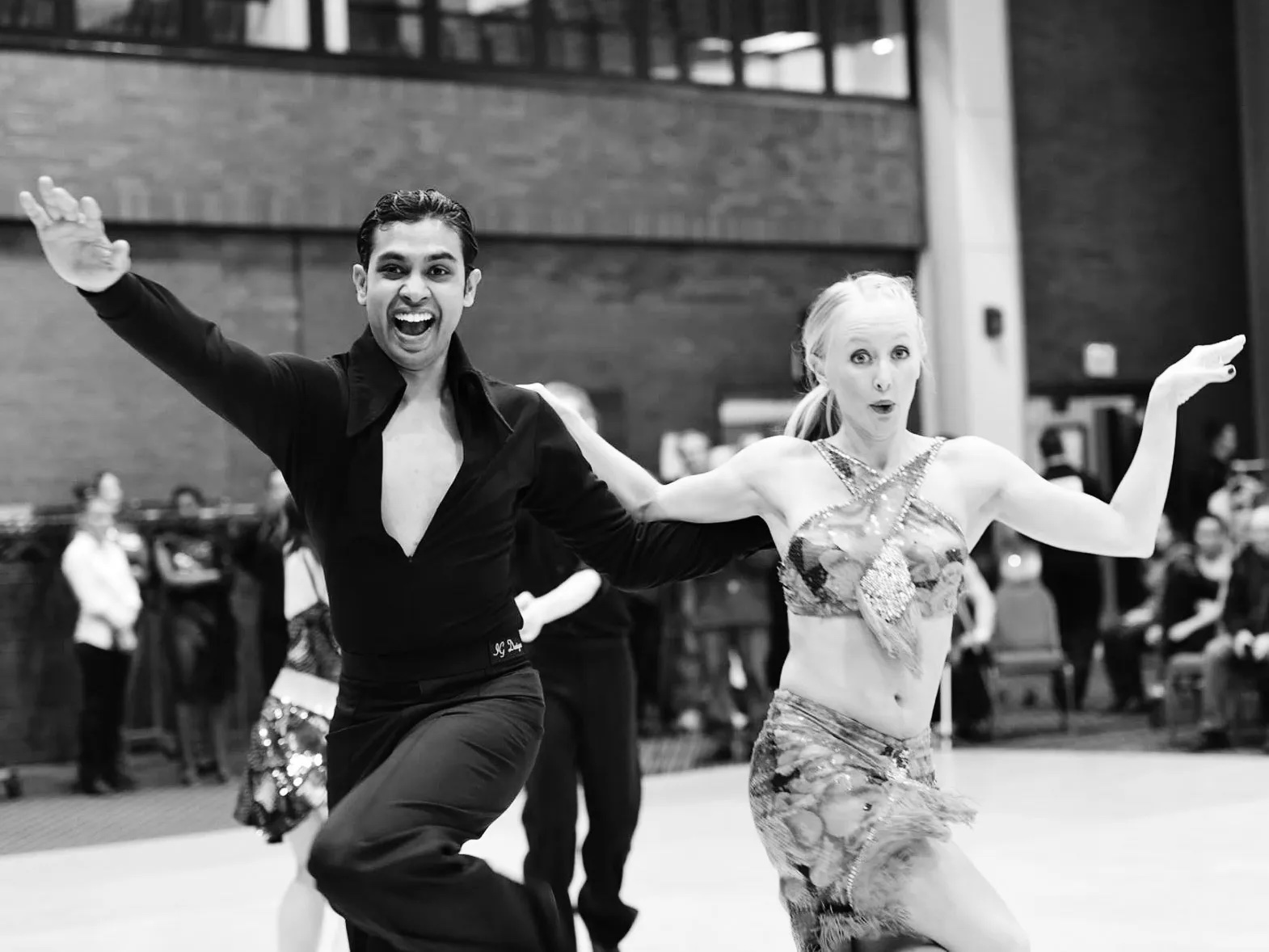
Namburi dancing a jive at a collegiate ballroom dance competition in 2016 with Allena Goren, PhD ’19, who was then his dance partner.
Courtesy photo
For high achievers who never give up, switching careers can be daunting. Here are five alumni who radically rethought their professional lives—and aren’t looking back.
Mark Roth | MIT Technology Review/MIT News
This piece in MIT News in MIT Technology Review takes a look at alumni who have made major career changes. This portion is about Praneeth Namburi, PhD '16, who is a research scientist at MIT’s Institute for Medical Engineering and Science (IMES), working in MIT.nano’s Immersion Lab:
That data-driven scrutiny of movement has allowed him to help athletes and dancers get even better at what they do. For example, while working with a dancer with back pain and her coach, he placed sensors on the dancer’s spine and had her wear an augmented-reality headset so she could see them. Then he told her to move the top two sensors apart (which involved stretching her spine) and use that stored energy to execute a turn—which she did, painlessly. And when MIT’s fencing coach noticed a problem in the way his fencers were lunging, he assumed it was because their shoulders were tired. But Namburi’s measurements showed the problem was that the athletes were relying too much on their back muscles instead of their cores, a finding that changed the coach’s approach to teaching lunge technique.
Right now, Namburi is absorbed in trying to understand the intricacies of human movement. But down the road, he believes, his research could help older people avoid falls, workers perform their jobs more safely, and patients with movement disorders like Parkinson’s improve their mobility.
And once he understands the biophysics of artful movement, he hopes to explore the neuroscience behind it using the same kinds of molecular tools he employed in Tye’s lab.
Namburi explains his change in focus by saying he chose the opportunity that felt right—and the one that made sense to him.
“I thought to myself, if I don’t continue on my path in neuroscience, there are other people who will take that path. But if I don’t do this new research on movement, no one else will pursue this,” he says.
“My friends kept telling me it was brave of me, but I said bravery requires choice, and I really didn’t see any other choice.”
* Originally published in MIT Technology News.
